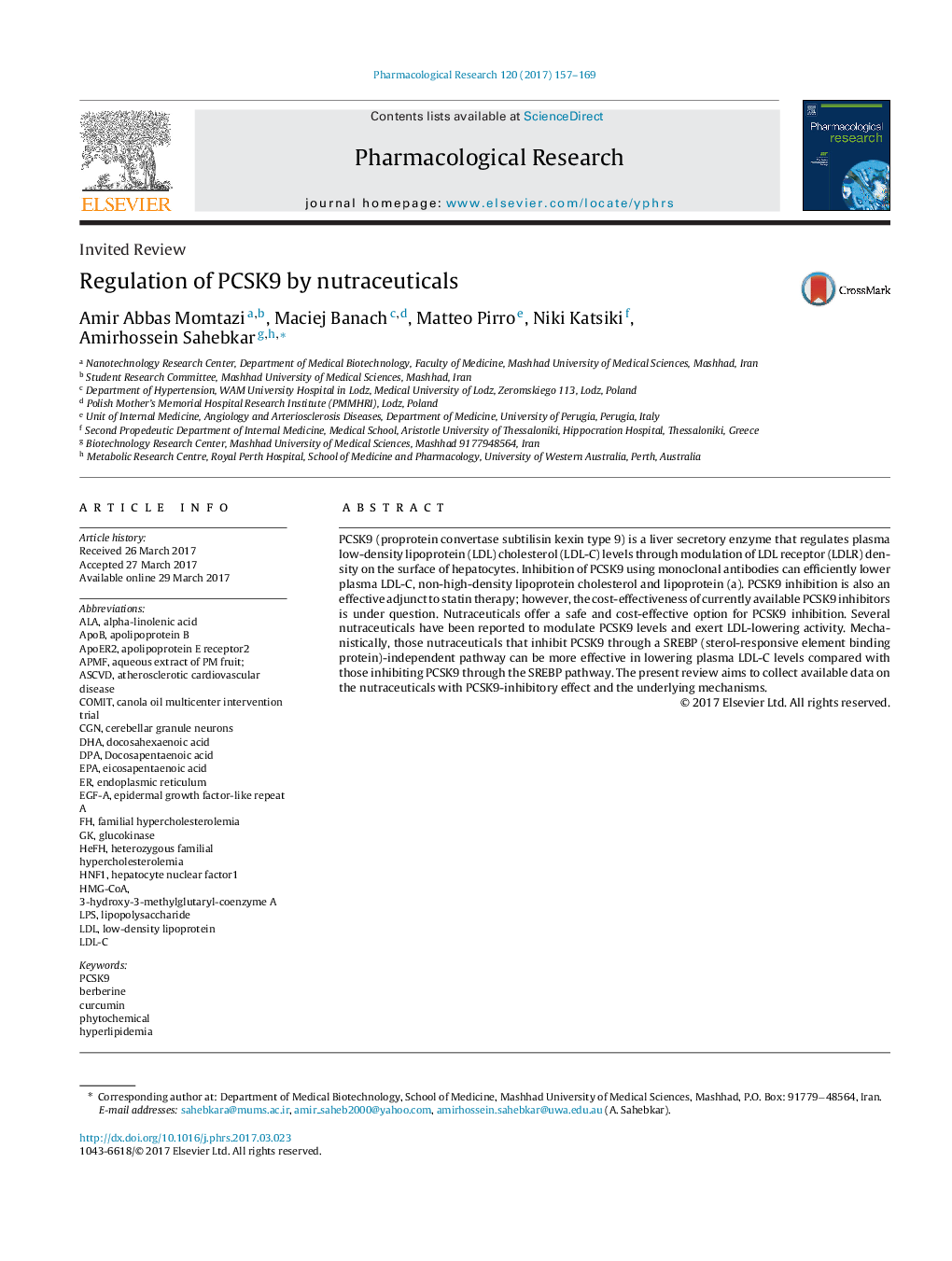| Article ID | Journal | Published Year | Pages | File Type |
|---|---|---|---|---|
| 5557220 | Pharmacological Research | 2017 | 13 Pages |
PCSK9 (proprotein convertase subtilisin kexin type 9) is a liver secretory enzyme that regulates plasma low-density lipoprotein (LDL) cholesterol (LDL-C) levels through modulation of LDL receptor (LDLR) density on the surface of hepatocytes. Inhibition of PCSK9 using monoclonal antibodies can efficiently lower plasma LDL-C, non-high-density lipoprotein cholesterol and lipoprotein (a). PCSK9 inhibition is also an effective adjunct to statin therapy; however, the cost-effectiveness of currently available PCSK9 inhibitors is under question. Nutraceuticals offer a safe and cost-effective option for PCSK9 inhibition. Several nutraceuticals have been reported to modulate PCSK9 levels and exert LDL-lowering activity. Mechanistically, those nutraceuticals that inhibit PCSK9 through a SREBP (sterol-responsive element binding protein)-independent pathway can be more effective in lowering plasma LDL-C levels compared with those inhibiting PCSK9 through the SREBP pathway. The present review aims to collect available data on the nutraceuticals with PCSK9-inhibitory effect and the underlying mechanisms.
Graphical abstractPCSK9, a critical inhibitor of LDLR, is up-regulated by both HNF1a and SREBP-2 transcription factors. Besides PCSK9, SREBP-2 up-regulates LDLR gene. Nutraceuticals, including curcumin and berberine, can decrease plasma LDL-C levels through elevation of the hepatic LDLR via inhibiting HNF1a which is a specific transcription factor for PCSK9 gene. Statins increase the expression of both PCSK9 and LDLR through the activation of SREBP-2, resulting in PCSK9-mediated attenuation of their effects.Download high-res image (91KB)Download full-size image
